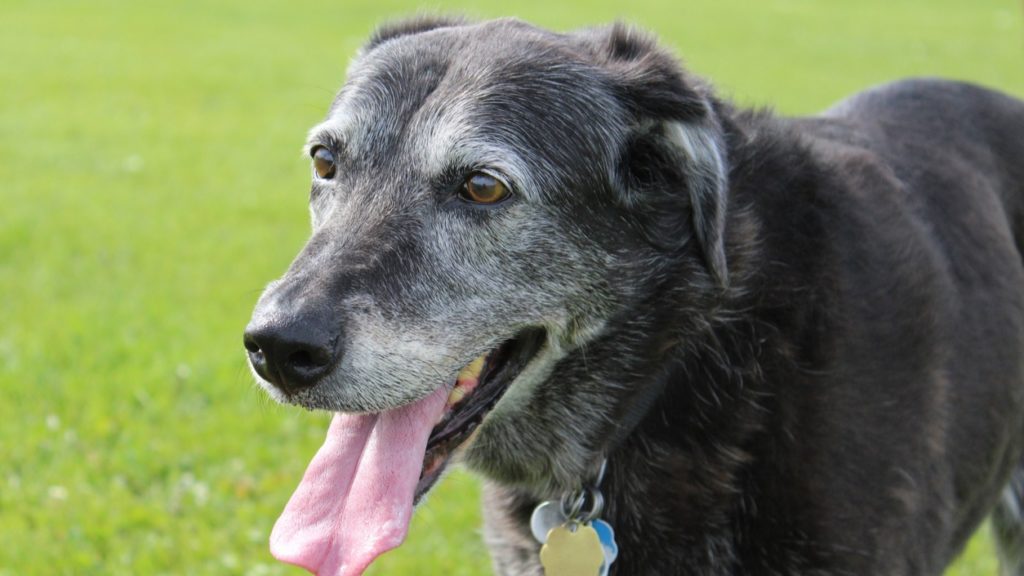Can Dogs Get Alzheimer’s Disease?
It can hurt to watch your pet suffer and change. Sadly, dogs can develop Alzheimer’s disease as they age. However, it is not a given. Not all dogs will develop this cognitive condition; in fact, there are many suggested ways to prevent the disease.
Before you can go through the preventative techniques, though, it is best to have an understanding of what this disease is. From what we know, there are symptoms and signs that can indicate the start of the condition. Although there is no cure for canine dementia, we can still slow down the progression with lifestyle changes and medications.

What is Alzheimer’s Disease?
Alzheimer’s disease is very similar in both dogs and humans. While this is the case, there are also key differences. Both, though, do not have a cure. From what we know, Alzheimer’s disease is a cognitive and brain condition where the brain cells die and don’t regenerate. When a brain cell dies and your dog’s body cannot continue producing more, this leads to relapses in memory, changes in personality, and confusion.
Although Alzheimer’s itself does not cause death, the effects and symptoms as they worsen can lead to the worsening of other health conditions. There is a lot of stress that comes with canine dementia. The thing about canine dementia with dogs is that it is not fully understood. Not all dogs as age feel this way, although there is confusion and a loss of memory and sight.
The Symptoms and Signs of Canine Dementia
The symptoms and signs of canine dementia are diverse. This means that not all dogs will react the same way as their body and brain start to change. While this is true, the most common symptoms to watch out for are:
- confusion
- bursts of aggression
- forgetfulness
- constant whining
- sniffing around
- fatigue
- weight loss
- slower movement
As soon as you notice a combination of these symptoms, it is best to get your dog an appointment with your veterinarian. They will have more luck diagnosing your dog with the condition and finding a treatment or management plan.
Diagnosing Dog Alzheimer’s
It is not easy to diagnose a dog with Alzheimer’s. Technically, there is no one quick test that will come up with a definitive solution or a ‘positive’ reading. Instead, your dog will need to be monitored by a vet and other medical professionals. It is best if you write down every symptom you have noticed, the severity, and the durability. This way, your dog’s vet can see the notes and make an estimated guess.
The thing about diagnosing dogs with Alzheimer’s is that there are no cures or quick solutions. Instead, you are tasked with managing the symptoms and pain and decreasing the speed at which the disease worsens.
Managing Dog Alzheimer’s
If you are looking to manage your dog’s condition, you will need to make significant lifestyle changes. One of these changes is to keep everything in a specific order. Since your dog is losing their memories, this can be frustrating and stressful.
Instead of changing their schedule, keep everything the same. In other words, don’t move the food or water bowl. If your dog has a favorite toy they have had for years, keep it!
Do you take your dog out on frequent walks and play dates? Experts recommend taking your dog out at the same time on a schedule. It is okay to be a few minutes late, but this helps your dog transition and get used to a schedule. Muscle memory is strong, and this can also decrease the rapidity of the disease.
We also recommend finding ways to alleviate your dog’s anxiety and worries. The best way to do this is by taking away whatever is causing the stress.
Make your dog some space in a familiar area so they feel comfortable. A comfort corner can go a long way. Giving your dog space so they can feel their emotions and self-soothe helps in the long run.
Tips
There are also a few tips which can decrease the speed at which canine dementia worsens. Since the mind starts to decay and slow down, you may have luck training and playing with your dog to strengthen their mind. There are many different dog puzzle games that use treats and other positive rewards.
We recommend starting simple and each day encouraging your dog to play for a minimum of 10 minutes. The happier your dog is (dopamine), the fewer chances they have of developing and worsening canine dementia.
Dogs Can Get Alzheimer’s and We’re Here to Help
Overall, dog Alzheimer’s is heartbreaking to watch. No one wants to see their furry and loving friend change because of their brain and age. It is a common condition, though, and there are many things that you can do to decrease the severity.
If you believe your dog has Alzheimer’s, reach out to Schertz Animal Hospital to schedule their exam.
Share This Article
About
Schertz Animal Hospital
Since 1976, Schertz Animal Hospital has offered the greater San Antonio area outstanding pet care. Our state-of-the-art animal hospital in Schertz, TX compliments our stress-free handling and experienced veterinary staff. Make an appointment online or give us a call at (210) 659-0345 today!
